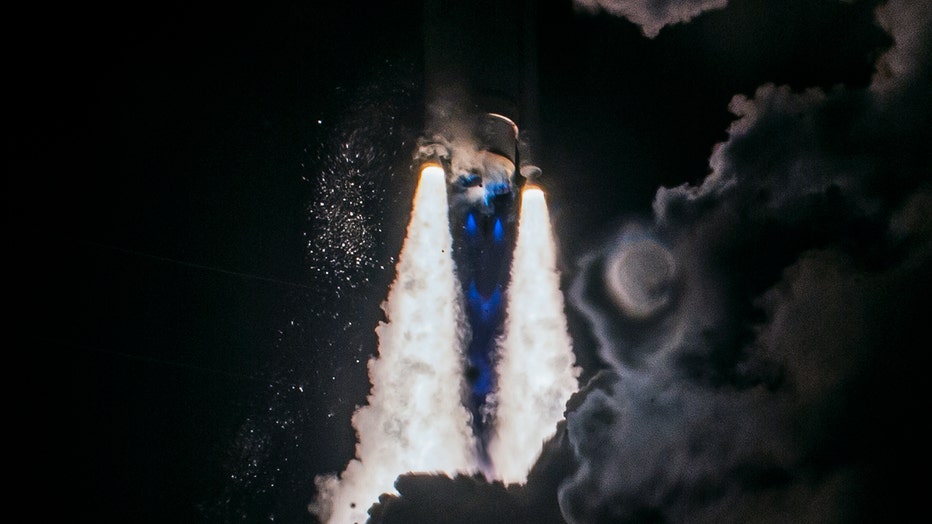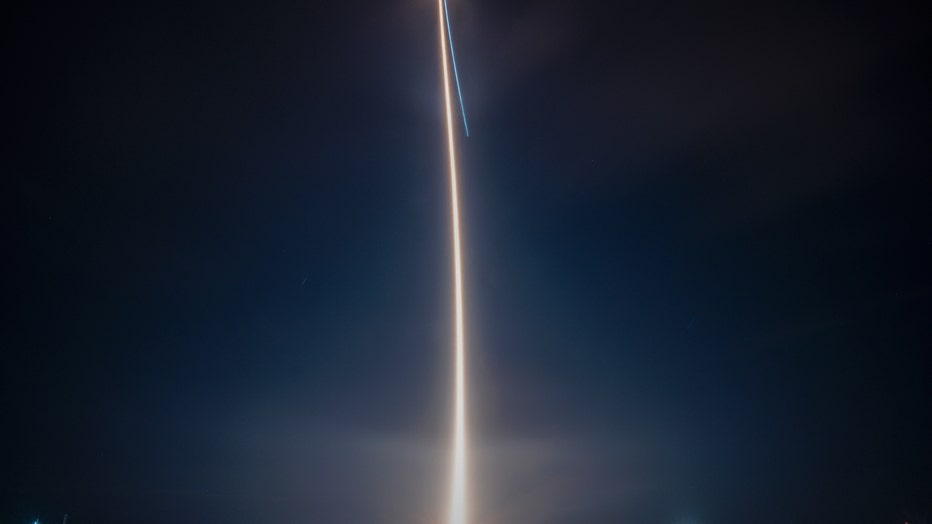ULA launches new Vulcan rocket from Florida, sending science to the moon
BREVARD COUNTY, Fla. - ULA made history on Monday morning, successfully launching its new Vulcan rocket from Florida's Space Coast.
The company is betting on the new rocket to lower launch costs and plans to start replacing its older rockets with Vulcan.
The innovation is also important to NASA as the agency starts relying more on commercial companies for future missions.
While Monday’s launch was smooth sailing, Vulcan faced several challenges to get here.
Last March, the rocket exploded during a test, and Vulcan was originally supposed to launch last year. The company persevered, and this test flight was a success.
It was a picture-perfect liftoff for ULA at 2:18 a.m. from Launch Pad 41 at Cape Canaveral Space Force Station. This was the maiden launch for Vulcan, which is ULA’s first new rocket since 2006.
"This one is really special because of what it means to our country, to our customers and to our team," Tory Bruno, ULA’s CEO, said.
The Vulcan rocket is ULA’s 159th launch and the company’s future. It’s 202 feet tall and has new fifth generation boosters from Northrop Grumman.
"It’s going to deliver some extra thrust for the mission that are required and builds on the assured access to space that the nation is counting on," Bret Baldwin who’s the general program director for Northrop Grumman, said.

TOPSHOT - The brand new rocket, United Launch Alliance's (ULA) Vulcan Centaur, lifts off from Space Launch Complex 41d at Cape Canaveral Space Force Station in Cape Canaveral, Florida, on January 8, 2024, for its maiden voyage, carrying Astrobotic's
The nation is also counting on the lunar lander to make it to the moon, which no commercial company has been able to do.
"It’s a risky endeavor to try and land on the lunar surface just given the conditions for landing," Angela Melito, a program executive for the science mission directorate at NASA, said.
The lander will use sensors and navigation systems to reach the moon. It will look for water and test for radiation. The goal is to survey the surface before NASA sends astronauts on future Artemis missions.
"This was our next effort of NASA going back to the moon in an innovative way through commercial companies," Melito said.

TOPSHOT - The brand new rocket, United Launch Alliance's (ULA) Vulcan Centaur, lifts off from Space Launch Complex 41d at Cape Canaveral Space Force Station in Cape Canaveral, Florida, on January 8, 2024, for its maiden voyage, carrying Astrobotic's
The success of this launch could also spark more competition in commercial space. Right now, SpaceX is dominating the industry with the amount of launches they're doing.
ULA says Vulcan is their new weapon to increase how often they’re able to launch into space.

